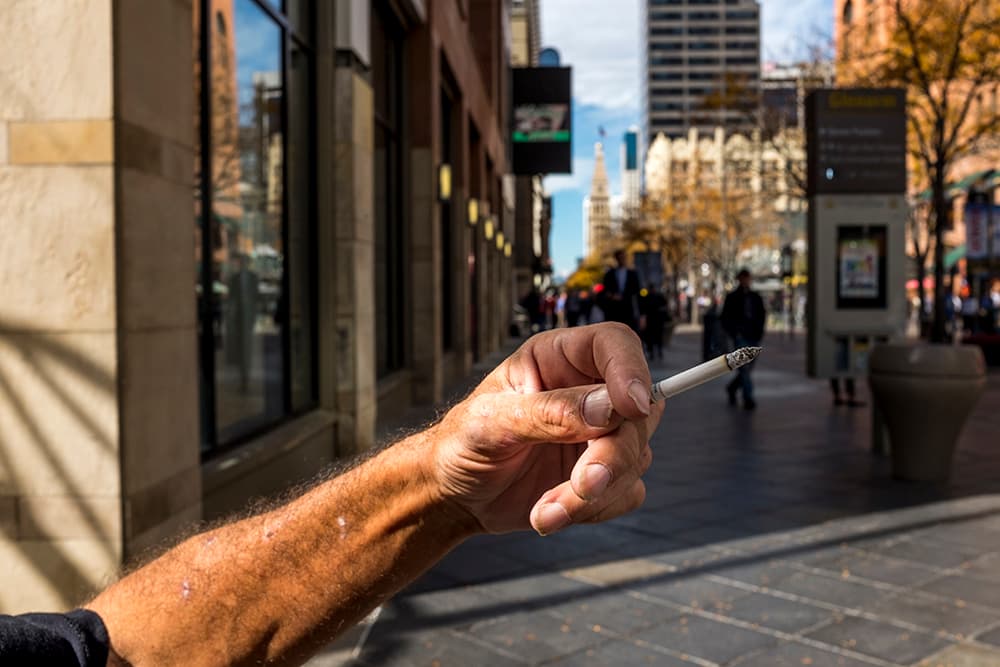Because the kids these days vape and (still) smoke, the government these days is looking to make it harder to do.
The Denver City Council's safety committee will consider a proposal Wednesday that raises the minimum age for buying tobacco and nicotine products to 21.
The bill, initiated by the Hancock administration's public health department, would also force licenses on stores that sell tobacco, e-cigarettes and vapes with nicotine cartridges. Business owners within 1,000 feet of schools, childcare centers, rec centers and public pools would be denied licenses, according to the bill language.
Currently the city does not license stores that sell tobacco any differently than other stores. So officials don't have a grasp on who sells what, making underage sales harder to enforce, said Tristan Sanders, public health manager with the Denver Department of Public Health and Environment. He thinks licensing the stores will curb underage sales and hold sellers accountable.
The public health department has been sending underage kids to buy cigarettes and electronic nicotine devices for the past two and a half years. Between 7 and 10 percent of Denver stores sell cigarettes to minors, according to DDPHE. But 27 percent sold kids vapes and e-cigs.
"Tobacco use around the world used to look a lot different," Sanders said. "Now we have an epidemic, really, of vape usage."
Bear with us for some more numbers, which come from a 2018 survey by the state public health department: 23 percent of Denver high school students reported using tobacco, while 18 percent reported vaping specifically. Around half the kids surveyed said they could easily get tobacco products, and 55 percent said vaping and toking e-cigarettes aren't risky behaviors.
City Councilwoman Jamie Torres says she supports the bill, which actually stemmed from a group of students at the Denver Center for International Studies about five years ago. Her predecessor, Clerk and Recorder Paul López, initiated a bill but it never became law. The public health department revived it.
"It became a snowball effect of policy that initiated with these kids and what they were seeing everyday," Torres said.
No one from the tobacco or vape industries has lobbied elected officials, at least recently, according to public disclosure records. The City Council committee will decide whether to advance the bill to the full legislative body Wednesday.











